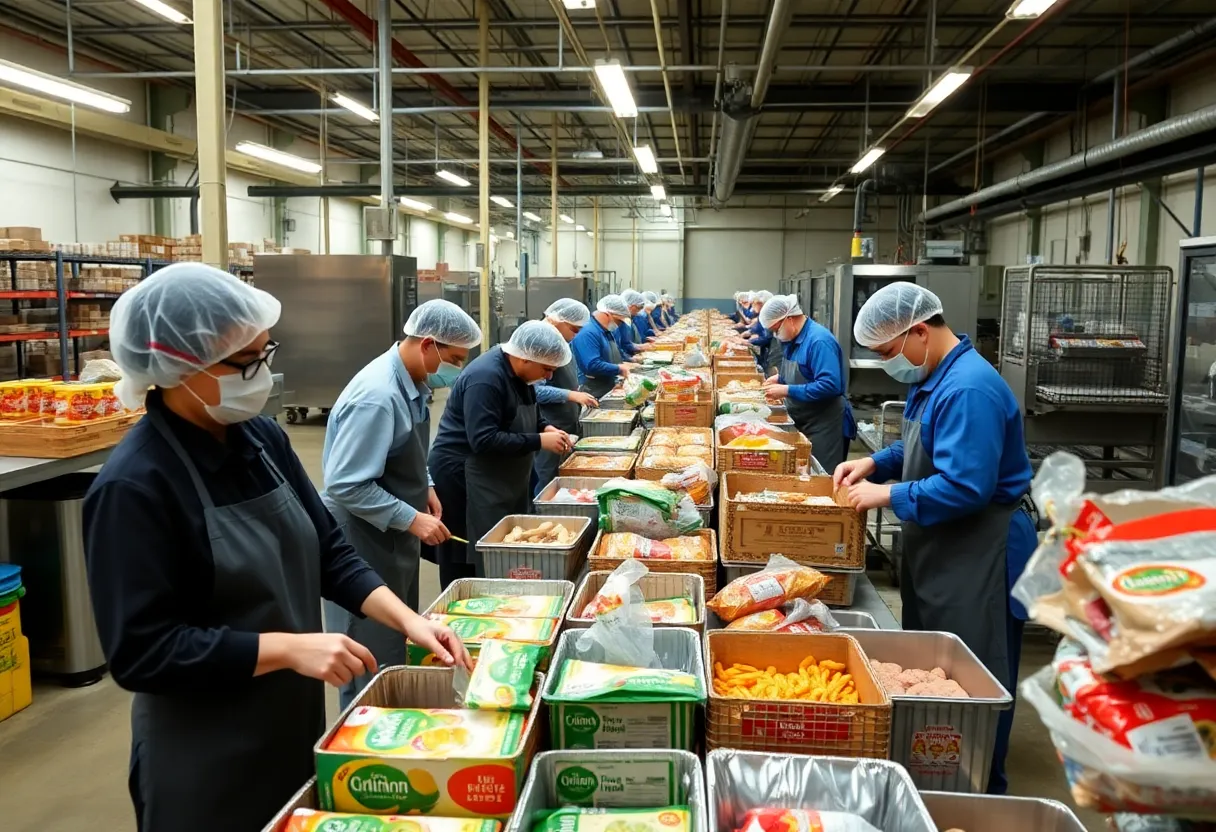Louisville, KY, October 16, 2025
Nestlé has announced plans to cut 16,000 jobs globally as part of a cost-reduction strategy, impacting Kentucky’s supply chain, particularly in Louisville. Local food processors are poised for potential order reductions and are adapting by diversifying their customer bases. The job cuts could strain Kentucky’s economy, affecting firms that rely heavily on Nestlé. Analysts suggest proactive measures to navigate these challenges, emphasizing the importance of local partnerships and innovation to mitigate the impact of such global decisions.
Nestlé’s Global Job Cuts Spark Concerns for Kentucky Suppliers
Louisville, KY – Nestlé, the global food giant, has announced plans to eliminate 16,000 positions worldwide as part of an aggressive cost-cutting campaign. This sweeping initiative, affecting operations across multiple countries, is expected to send indirect ripples through Kentucky’s supply chain, particularly impacting Louisville-area food processors. Local businesses reliant on Nestlé’s orders are preparing for potential reductions, which could strain regional economies already navigating broader market shifts.
The job cuts represent a significant restructuring effort by Nestlé to streamline operations and improve financial efficiency amid rising global pressures such as inflation and supply chain disruptions. While the eliminations are set to occur on a multinational scale, experts note that suppliers in states like Kentucky, which host key food production hubs, may face immediate challenges. In the Louisville region, processors handling ingredients and packaging for Nestlé products are bracing for scaled-back contracts, prompting a shift toward exploring new markets closer to home.
These developments come at a time when Kentucky’s agricultural and manufacturing sectors are vital to the state’s economy. Food processing employs thousands in the area, with many firms depending on large buyers like Nestlé for steady revenue. A drop in orders could lead to temporary layoffs or reduced production schedules for local suppliers, though the full extent remains unclear as details on specific Kentucky ties are still emerging.
Local Businesses Adapt to Potential Order Reductions
In response to the anticipated changes, Louisville-area food processors are actively diversifying their customer bases. Some companies are turning to regional buyers, such as independent grocers and farm-to-table operations, to offset possible losses from Nestlé’s reduced demand. This pivot aims to build resilience against fluctuations from multinational corporations, ensuring more stable local workflows.
Business analysts monitoring the situation emphasize the need for agile strategies during such transitions. Recommendations include investing in versatile production lines that can serve multiple clients and strengthening ties with domestic markets. For Kentucky suppliers, this means reassessing contracts and exploring opportunities in growing sectors like sustainable packaging or specialty foods, which could mitigate the impacts of global cutbacks.
The broader context of Nestlé’s move highlights ongoing trends in the food industry, where cost-cutting measures are increasingly common. Companies worldwide are optimizing supply chains to cut expenses, often leading to consolidated orders and fewer long-term commitments with smaller suppliers. In Kentucky, this could accelerate efforts to bolster local economies through initiatives that prioritize in-state partnerships and innovation in food technology.
Implications for Kentucky’s Food Supply Chain
Kentucky’s position as a hub for food processing makes it particularly sensitive to disruptions from global players. The state’s processors contribute significantly to both national and international markets, handling everything from dairy to grains that feed into major brands. With Nestlé’s cuts potentially trimming orders, local firms may need to navigate cash flow challenges in the short term, while positioning for long-term growth.
Analysts point out that while the direct job losses are worldwide, the indirect effects could touch hundreds in Kentucky through supply chain adjustments. Businesses are advised to monitor regulatory changes and seek support from state economic development programs to weather the storm. This scenario underscores the interconnected nature of global business, where decisions in boardrooms far away can influence local livelihoods.
Looking ahead, the focus for Louisville-area processors remains on adaptation. By diversifying into local markets, these companies aim to reduce dependency on any single client, fostering a more robust economic foundation. As Nestlé implements its plan over the coming months, Kentucky’s business community will watch closely, ready to adjust strategies to maintain competitiveness in a dynamic industry.
The announcement aligns with a pattern of corporate efficiency drives, but its ripple effects serve as a reminder of the vulnerabilities in interconnected supply chains. For now, proactive measures by local suppliers could turn potential setbacks into opportunities for innovation and regional collaboration.
Frequently Asked Questions
What is Nestlé planning to do with jobs?
Nestlé revealed plans to eliminate 16,000 positions worldwide as part of aggressive cost-cutting.
How are these cuts affecting Kentucky?
The cuts have indirect effects rippling to Kentucky suppliers.
What are Louisville-area food processors doing?
Louisville-area food processors are bracing for reduced orders, prompting diversification into local markets.
What advice do business analysts have?
Business analysts advise agile strategies to navigate multinational shifts.
Key Impacts of Nestlé’s Job Cuts
The following table outlines the primary features and effects of the announced changes.
| Feature | Description | Scope |
|---|---|---|
| Job Eliminations | Elimination of 16,000 positions worldwide as part of aggressive cost-cutting | Nationwide (Global) |
| Effects on Suppliers | Indirect effects rippling to Kentucky suppliers | State-level (Kentucky) |
| Local Response | Louisville-area food processors bracing for reduced orders, prompting diversification into local markets | State-level (Kentucky) |
| Analyst Advice | Agile strategies to navigate multinational shifts | State-level (Kentucky) |





